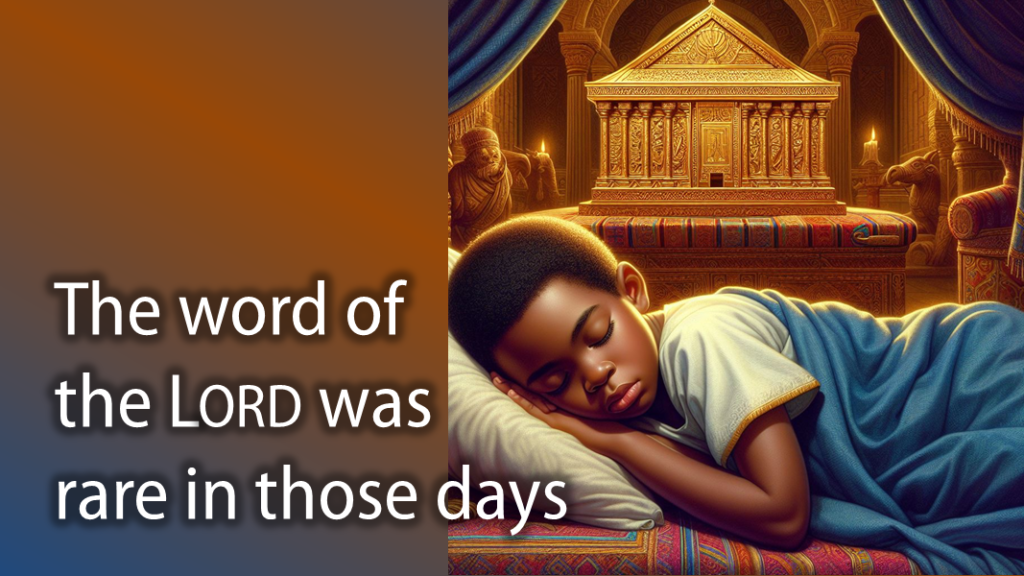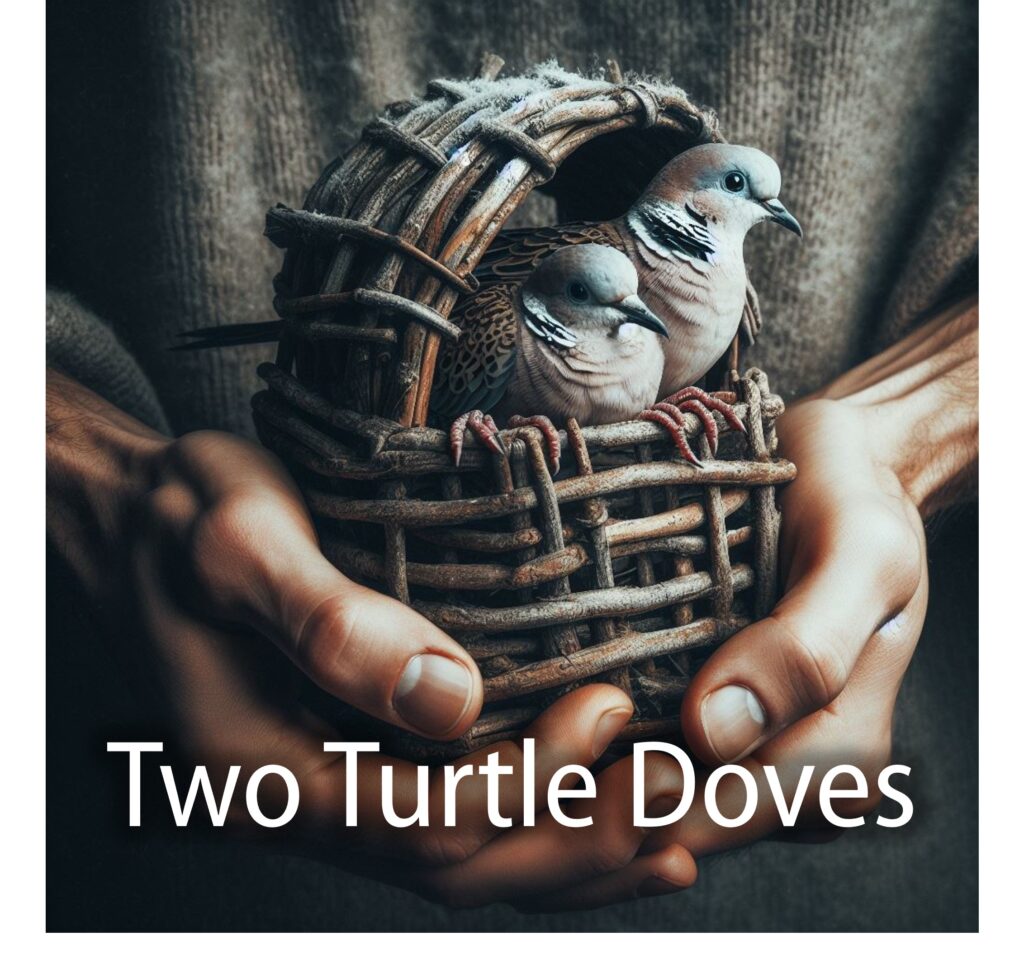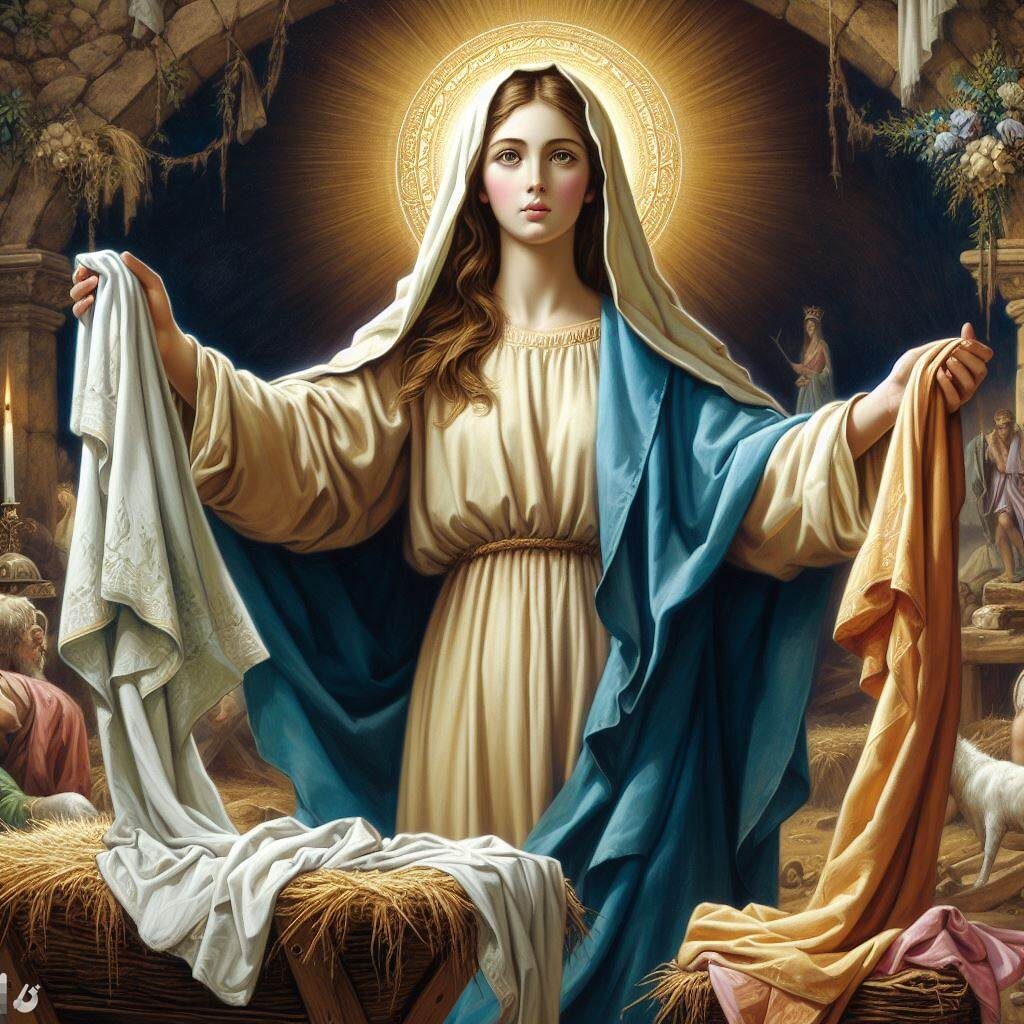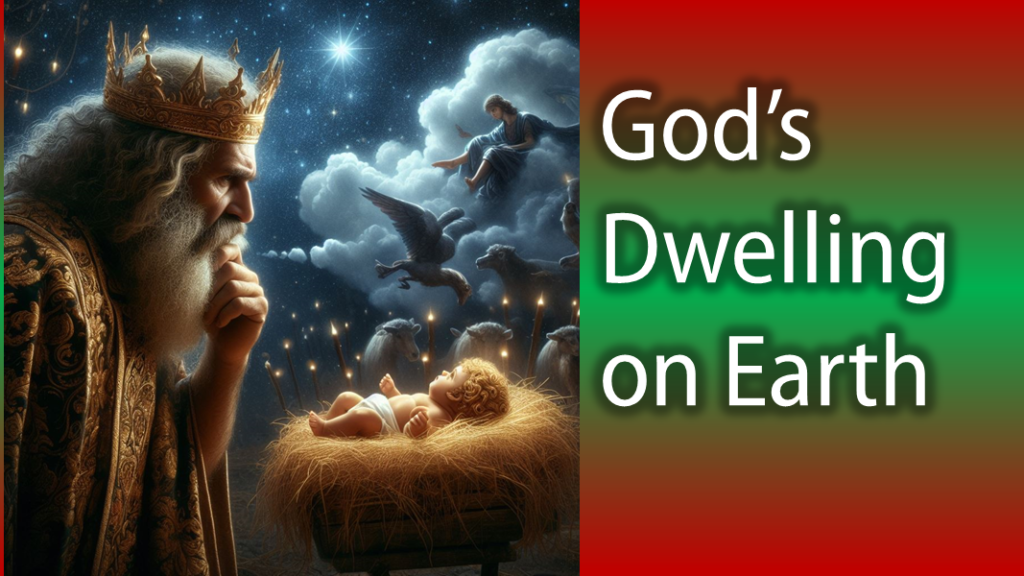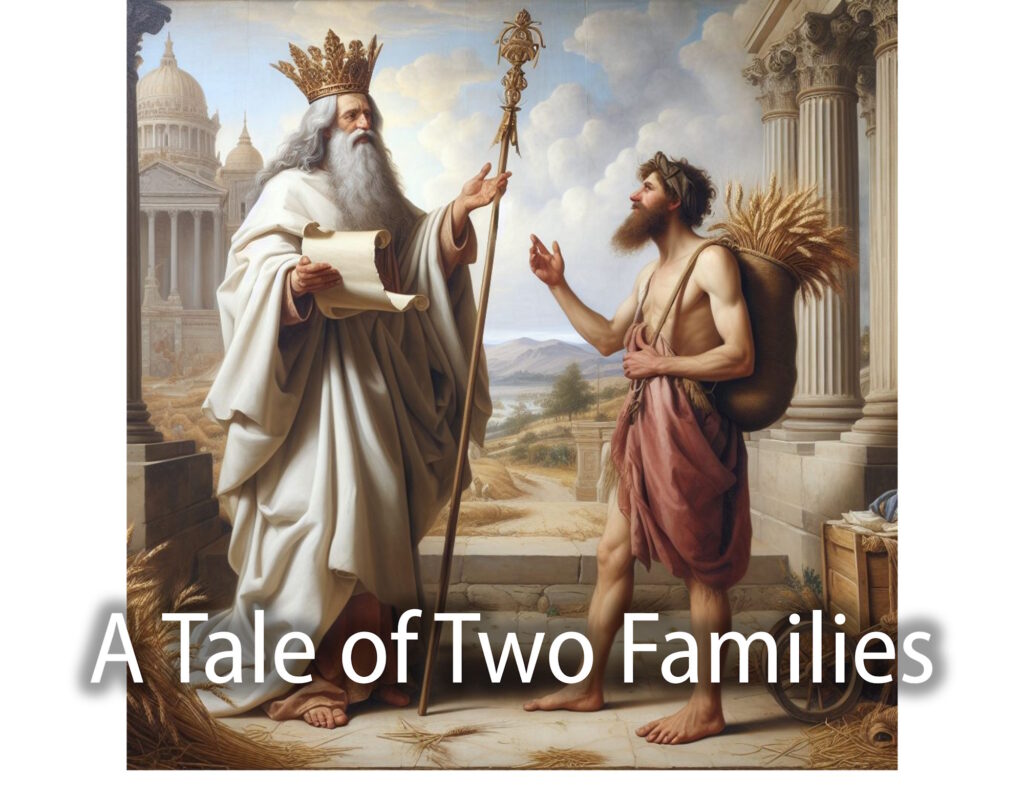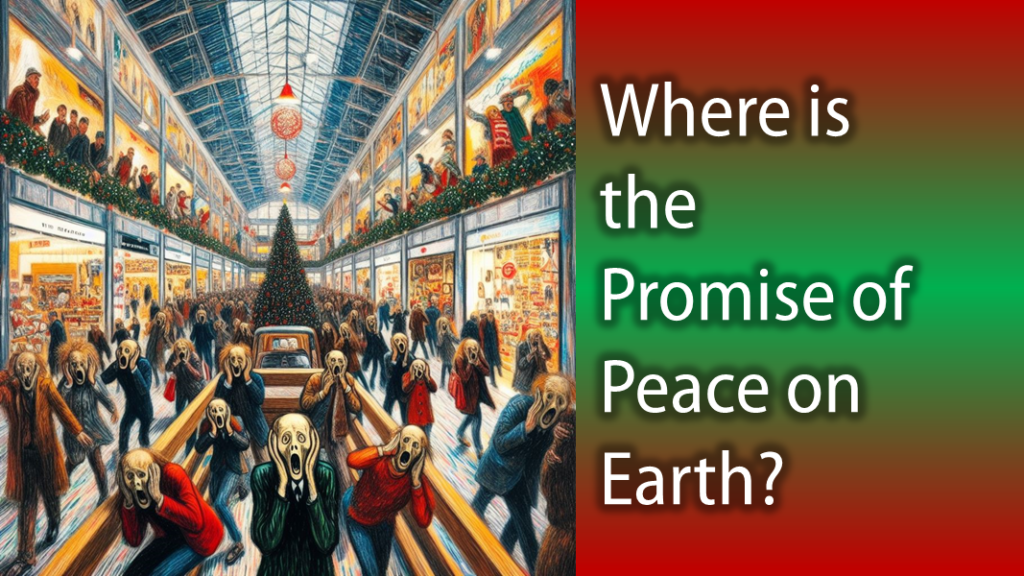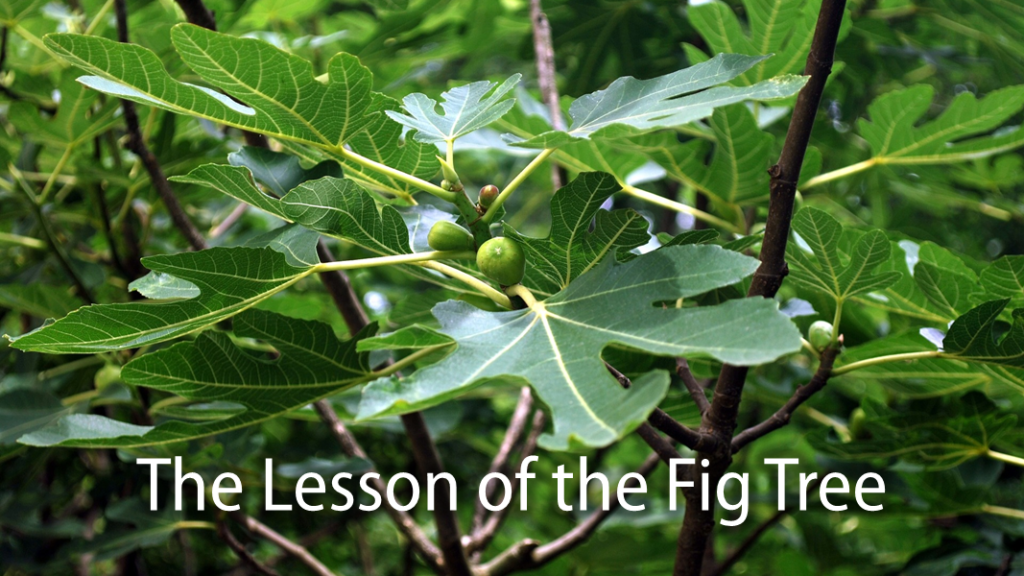Hespeler, 21 January, 2024 © Scott McAndless – Third Sunday after Epiphany
Matthew 7:7-11, Matthew 13:44-46
As many of you know, last week I was given the privilege and honour of preaching at the funeral of my father: William L. McAndless. And I know that a few of you came out to that funeral all the way over in Scarborough and some more of you watched the service online. That meant a lot to me.
But I’m hoping you will indulge me in something. I’d like to preach what I preached there for you again today. I don’t want to do that merely to honour my dad, though of course I do that, but also because I think it would be a good way to give you all an insight into my own faith journey and how I came to be the kind of Christian I am today. So, with some apologies to those who have heard it before, I am going to share what I said.
An Honour
I have been given the privilege and honour of speaking at many services like this for many different people over the years. And I can assure you that every single one has been special; every one has been unique. But this one, I confess, seems particularly special and particularly unique.
But in all those years of preaching at funerals, I have come to an understanding of what it is that I am here to do.
You see, I don’t believe that it is my job to proclaim the Christian gospel on these occasions. I don’t even think that is up to me to promise you anything in particular about the afterlife. That’s because there is somebody else – somebody other than me – who is in a much better position to preach to us about those things.
I believe that every individual, every single life, has important things to teach us about the kingdom of God. My job is simply to find that lesson in the life of the person we are celebrating and share it so that we can all grow a little closer to the kingdom. And in all the funerals and memorials I have ever preached, I have never failed to find that lesson in someone’s life.
I have certainly not failed when it comes to reflecting on this life.
Jesus’ Way of Talking about God
When Jesus came among us and taught us about God, he was in the habit of referring to God in a very particular way. He liked to call God, Father. He even taught people to pray and to say, “Our Father who art in heaven…”
And while Jesus was hardly the first person to speak of God as Father, he seems to have brought a special intimacy and familiarity to how he said it. He called God Abba, an Aramaic word for father. But it wasn’t the common everyday word for the patriarchal figure recognized by society. It was the word that was only used inside the family by children of all ages to speak about their father – sort of like we use the word “Dad” in my family.
But what did Jesus mean when he called God, “Abba?” Did he mean it literally? Was he saying that God is male, or that God is a biological progenitor of all people? Of course, not. It was a metaphor, sort of a one-word parable. He was saying that, in some very important ways, God was like a very good Dad.
Reflections on our Experience
One day, when Jesus was trying to get people to understand God’s relationship with them, he invited his listeners to think of it in terms of their own experience of fatherhood. “Is there anyone among you who, if your child asked for bread, would give a stone?” he wanted to know. “Or if the child asked for a fish, would give a snake?” What he was saying was that God, in some sense, is like a good father who knows how to give good things to his children.
Now, I am very aware that this kind of father imagery for God doesn’t work for everyone. The sad truth is that not all fathers do know how to give good things to their children. Not all fathers are present for their children, some are too caught up in their own woundedness. Some can also be so much worse than neglectful. And so there are definitely some people who, when you call God father, can only imagine a God who is mean, vindictive or abusive. Such language does not help them and often hurts their image of God.
But what Jesus is also saying is that we, who have not seen God and have not the human language to describe God in any literal sense, are kind of stuck. We can only understand God – can only even speak of God – as extensions of what we have seen and experienced. And, yes, if calling God father does not help you to have a healthy image of God, you need to find a different metaphor.
My Image of God
But I just want to tell you today that I have a very good image of God. Deep down in my soul, I believe in a God who is kind, gracious, forgiving and generous. I am even able to believe in that God despite all of the problems, failures and downright evil I encounter in this world. I can see it all and still believe that God will find a way through it – that (as Martin Luther King Jr. paraphrased) “The arc of the moral universe is long, but it bends toward justice.”
Now, why do I believe in that God? I could give you the correct theological answer and say that it is because of what I have seen and experienced in Jesus Christ. That is true enough. But the real answer goes much deeper. I believe that because I experienced a father who knew how to give good things to his children.
He was not perfect; no human father is. But he never acted in any way that made me doubt the essential truth that there was goodness in the universe. I came to believe that God knows how to give good things to God’s people because I had a good Dad. What I came to know about God through Jesus certainly confirmed that, but I don’t mind saying that my image of God started with my Dad.
Problems that Come with that
Are there some problems and issues and shortcomings that come with that? Sure. For some inexplicable reason, when I imagine God, the God that I picture, might usually be found sitting in the armchair in the living room exhaustively reading the Toronto Daily Star, because that was where I usually found my Dad when I was growing up. There probably are times when my view of God is imperfectly tainted by my experience of my Dad, but overall, I think I am very fortunate for the view of God that I grew up with.
So, my Dad gave me an amazing starting image of God. And here is what he has to teach all of us today about the kingdom of God.
Jesus Speaks about the Kingdom
Jesus seems to have spent almost all of his time talking about this thing that he called the kingdom of God. But, curiously, he never quite said what it was. It’s kind of the same thing when it comes to describing Godself. We really don’t have the human words to describe what the kingdom of God is, and so all Jesus could do was say what it was like. And he did that, mostly, by telling stories and parables.
Bill’s Discovery
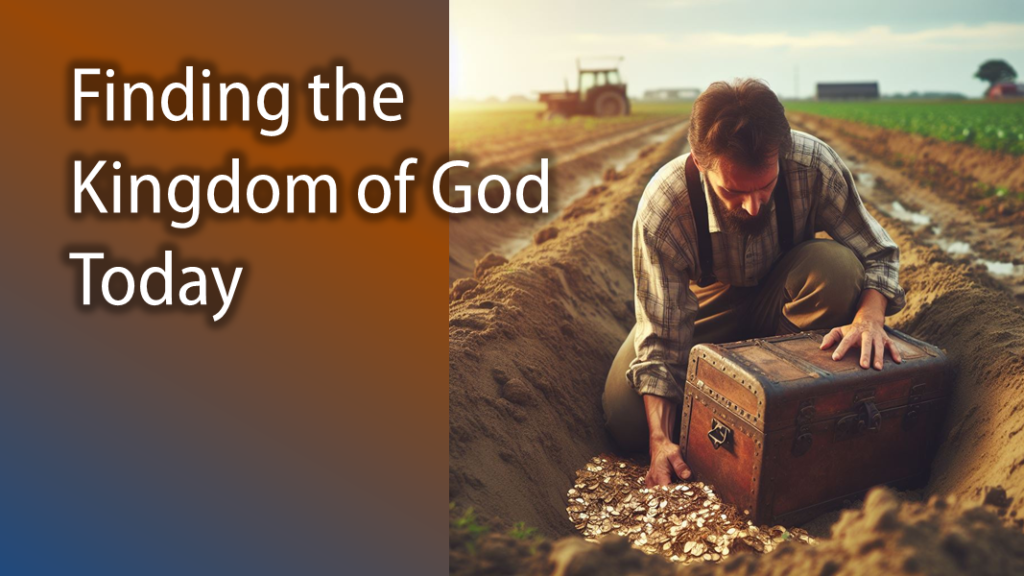
And one of the stories that he told went like this. The kingdom of God, he said, is like what happens when this guy, let’s call him Bill, is walking along one day. He is crossing a strange field, a field that belongs to somebody else, when he stumbles across an amazing discovery. There, hidden in the field where nobody has ever seen it before, he discovers buried treasure of immense value.
What an amazing thing! But no sooner does he discover this treasure than he realizes the problem that comes with it. He doesn’t own the field, so how can he claim the treasure?
The obvious solution, of course, is to just buy the field, but he hasn’t got the money. And so, Bill comes up with a plan. He sells everything that he owns, divests himself of absolutely every possession until he has nothing left. And he goes out and pays an absolutely ridiculous price to buy that field from the poor sod who owns it and has no idea what is buried in it.
And Jesus said that that is what the kingdom of God is like. What on earth is that supposed to mean? How is that supposed to illustrate to us what God’s kingdom is like?
What Could that Possibly Mean?
We could struggle to answer that question for a long time, but we don’t need to. We don’t need to because this man that we celebrate today has demonstrated so clearly what Jesus was trying to say.
Bill McAndless was a man who recognized real treasure. He knew what was really valuable. And, despite being a banker for so very long, he knew that the truly valuable treasure of this world was not to be found in bank vaults.
My Mom and my Dad
He recognized the treasure that was hidden, and that other people might have walked by a thousand times and never even noticed. When he met a young woman named Doris May Heron, my Mom, he knew that here he had found a pearl of great price – a treasure of unsurpassed value.
But, even more important than that, he knew what to do when he discovered such treasure. He decided to give up everything he had and everything that he was in order to share his life with that incredible woman of great value. He would not let anything stand in his way – not even the odd beetle hiding under the meringue.
Okay, that’s a bit of a story from family lore. The first time my Dad came over to my maternal grandparents house, my mother’s little sisters told him that my mother had created the entire supper. It wasn’t true, but they were trying to fix him up with her. The dessert was lemon meringue pie. My father’s favourite! But, in my father’s piece of pie, there was a giant dead beetle hiding underneath the meringue. My father, ever the wise man, simply put the beetle aside and kept on eating. That’s what I mean when I say that he understood what was more important.
And fortunately, of course, Doris made the same discovery of hidden treasure in him – hidden even in things like his silence on their first date – and made the same decision to give up everything she had and everything she was to share her life with him.
A Pattern
But, more than that, this was not just a one-time thing in my Dad’s life. It was a pattern that he continued to repeat over and over again. When his children came along – when we came along – he absolutely saw the unique value and treasure that was in each one of us. We all know deep down inside that we matter, that we have value because he recognized that value in us and gave everything that he had and everything that he was for our sake.
And, of course, he did that with his grandchildren as well and his great grandchildren when they came. And I’m willing to bet that every single one of us can say that we know we have worth and value because we learned that from this incredible man.
And of course, that was not limited to his family (though we always came first). He did the same thing with his mother, his sisters and brother, with friends. And he knew the great value that was in his church community and joyfully gave his all to support that as well.
Understanding the Kingdom
And Jesus said that, if you can do that, if you can recognize what is truly valuable and give your all for the sake of that, you have understood the kingdom of God. That is why I can boldly declare that my father understood the kingdom of God and may have understood at least some aspects of it better than many a theologian or preacher.
He lived that kingdom and it showed in every aspect of his life. And if he knew God’s kingdom here and now, as we all can, we can certainly take great comfort today in the knowledge that he has entered into the fullness of that kingdom and that he is with his Lord in an existence that we can scarce imagine or dream of.
This, for me is the sermon that my father’s life has preached to us, and I am honoured to be the one who gets to reflect that back to you today.
